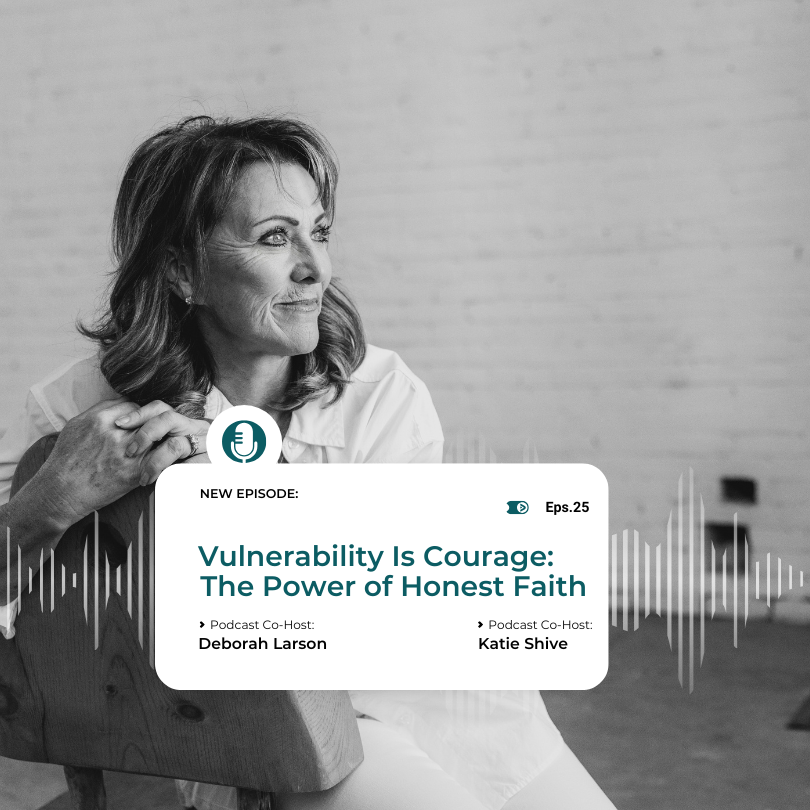Ever notice how our culture values “I’m fine” while our souls crave real connection? Same. This week on Redeeming Her, Katie and Deborah go there—into the messy, brave middle where vulnerability lives. Spoiler: vulnerability isn’t weakness. The power of honest faith is courage.
From Isolation to Love
And it’s how we move from pretending to healing, from isolation to love. We start with a simple, squirm-inducing truth: when we lock down one emotion, we lock them all. Numb the grief, you also numb the joy. Shut out fear, you also shut out connection. That’s why vulnerability is courage—because opening the heart invites risk and rewards: empathy, intimacy, and the presence of God in the real stuff.
Not the curated feed. The real life.
Katie names the cultural current: we’re trained to present, polish, perform. Deborah names the cost: when self-protection becomes default, we lose access to the very feelings that tether us to purpose and people.
The power of honest faith means we stop faking it in prayer and say the quiet part out loud: “Lord, today I don’t trust You here.” Honest? Absolutely. Disrespectful? No.
He already knows—and He meets us in truth.
Why Vulnerability is Courage
Vulnerability doesn’t require a 2,000-word Instagram confessional. Most days, it looks like small, brave moves that shift the atmosphere: Say the thing. “I’m not fine.” “I need help.” “I’m afraid.”
Clarity isn’t drama; it’s dignity. Ask and receive forgiveness. Both are vulnerable. Both are powerful. Tell God the truth. He can handle your doubts, anger, and questions. That honesty reopens the heart to love. Set smart margins. If your emotional margin is 10%, skip the party, take the walk, cry it out, then re-engage. That’s stewardship, not avoidance.
Underneath all of it sits a steady refrain: if you’re still breathing, you’re still in the game. Vulnerability is courage because getting back up—again—is courage. We aren’t performing for God; we’re partnering with Him, dust-and-all, in the arena of real life. Deborah describes vulnerability as “the cradle for emotions.” That image shifts everything. A cradle holds, steadies, and protects while growth happens.
When you choose vulnerability, you aren’t collapsing; you’re choosing a container safe enough for the full spectrum—grief and gratitude, fear and hope, weary and willing. Faith doesn’t demand a polished heart before you pray. Faith invites you to bring your actual heart.
That move—showing up honestly with God and with people—creates authentic connection. It’s how we move from numb to present, from “performing faith” to living faith. Courage is not the absence of pain; it’s the decision to stay open while you heal.
Learn more: RedeemingHer.com

Comments